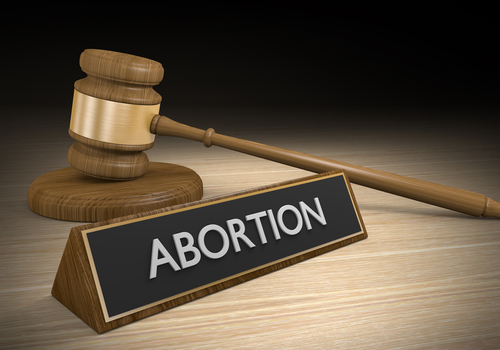ABA amicus brief urges SCOTUS to follow precedent in Louisiana abortion case

Image from Shutterstock.com.
The ABA filed an amicus brief with the U.S. Supreme Court on Monday that urges the justices to reverse an appellate decision upholding a Louisiana law that requires physicians who perform abortions to have admitting privileges at a local hospital.
In its brief, the ABA contends that the 5th U.S. Circuit Court of Appeals at New Orleans disregarded the Supreme Court’s precedent in Whole Woman’s Health v. Hellerstedt. The 2016 ruling reversed a prior 5th Circuit decision, holding that a Texas law requiring physicians who perform abortions to have admitting privileges at a nearby hospital constitutes an undue burden on abortion access and violates the U.S. Constitution.
The ABA says the same circuit court has now upheld a similar Louisiana law in June Medical Services v. Gee, which was granted cert by the Supreme Court in October. The ABA’s press release is here.
“Given the same basic statute at issue, and (certainly in light of the district court’s findings) the same basic facts, the legal analysis employed by this court in Whole Woman’s Health should produce the same result in this case,” according to the brief. “The interests of women seeking abortion in Texas and Louisiana are the same.
“There is no difference in the underlying medical facts between the two cases; abortions rarely produce complications, and there is no evidence at all that, even if complications occurred, the lack of admitting privileges would impact the continuity or quality of care.”
The ABA contends that the rule of law requires lower courts to adhere to precedent. In addition to Whole Woman’s Health, this decision ignores other decisions that have found admitting privileges requirements for physicians who perform abortions to be unconstitutional, the brief says.
“The result of the 5th Circuit’s decision, if allowed to stand, would be a stark, and at least a facially anomalous, inconsistency between what is an acceptable law concerning abortion services in Louisiana, as opposed to Texas and the rest of the country,” the ABA says. “Such inconsistency suggests the appearance of arbitrariness that stare decisis seeks to avoid.”
The ABA also says in its brief that the district court determined in this case that Whole Woman’s Health required the invalidation of the Louisiana law, since the burdens on women’s access to health care were not outweighed by any benefits.
In analyzing the benefits and burdens, the 5th Circuit failed to adhere to legal analysis prescribed by the prior decision and revised the district court’s findings in a way that was “directly at odds with the structure of our legal system and the role assigned to appellate courts,” according to the brief.
One of the ABA’s primary goals is to advance the rule of law. The association says it also has an interest in this case because of its policy opposing laws that interfere with health care access.
It adopted a resolution in August that “urges federal, state, local, territorial and tribal governments not to impose upon medical facilities or health care providers licensing or other regulatory requirements that are not medically necessary or that have the purpose or effect of restricting availability or burdening patients’ access to health care services.”
Oral arguments in June Medical Services v. Gee are scheduled for March 4.
Updated Dec. 3 at 9:35 a.m. to include the correct text of the ABA’s final resolution.



